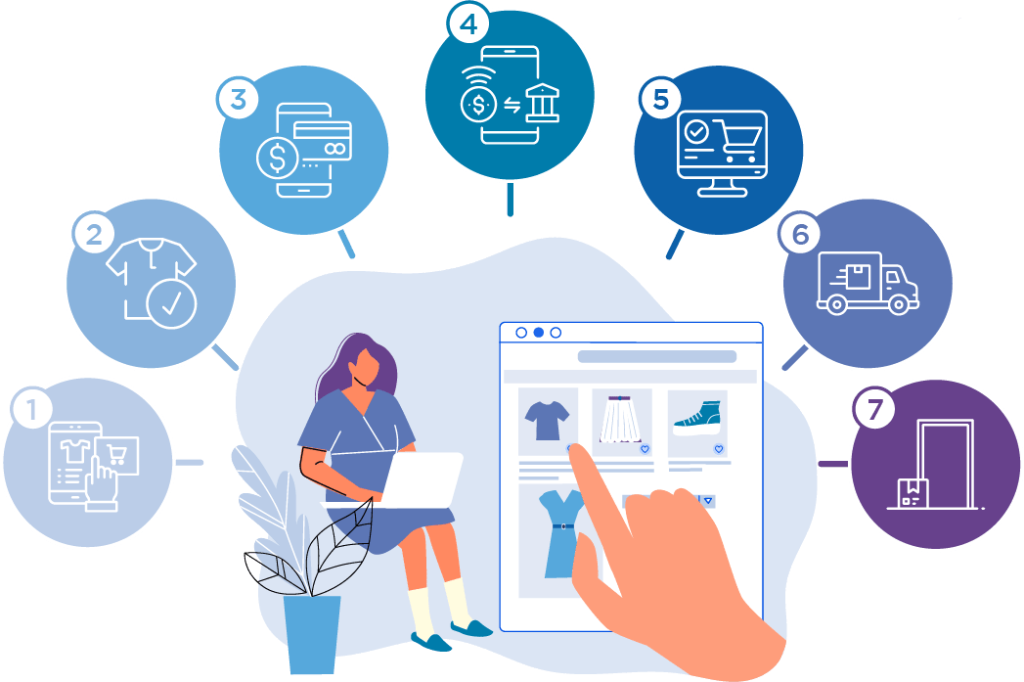In today’s digital era, ecommerce marketing has become a cornerstone of success for businesses aiming to reach wider audiences, drive sales, and enhance customer experiences. With the advent of ecommerce marketing automation tools, businesses can streamline their marketing efforts, save time, and maximize efficiency. In this detailed guide, we will delve into the intricacies of ecommerce marketing, the benefits of automation, and practical strategies for utilizing marketing automation tools effectively.
Understanding Ecommerce Marketing
Ecommerce marketing refers to the strategies and tactics employed by businesses to promote and sell products or services through online channels. Unlike traditional marketing, which primarily focuses on physical stores and offline advertising, ecommerce marketing leverages digital platforms, technologies, and tools to reach and engage target audiences.
Key Components of Ecommerce Marketing
Digital Content Creation: Content plays a crucial role in ecommerce marketing, including product descriptions, blog posts, videos, infographics, and social media posts. High-quality and engaging content can attract and retain customers, boost SEO rankings, and drive conversions.
Paid Advertising: Ecommerce businesses often utilize paid advertising channels such as Google Ads, social media ads, display ads, and sponsored content to increase visibility, reach targeted audiences, and drive traffic to their online stores.
Email Marketing: Email marketing remains one of the most effective tools for ecommerce businesses to nurture leads, promote products, announce sales and discounts, and build customer relationships. Automated email campaigns, such as welcome series, abandoned cart reminders, and post-purchase follow-ups, can significantly improve customer engagement and retention.
SEO and SEM: Search engine optimization (SEO) and search engine marketing (SEM) are essential for improving organic search rankings, driving organic traffic, and optimizing paid search campaigns to achieve higher ROI.
Social Media Marketing: Social media platforms like Facebook, Instagram, Twitter, LinkedIn, and Pinterest offer valuable opportunities for ecommerce businesses to connect with customers, showcase products, run targeted ads, and drive conversions through social commerce features.
Influencer Marketing: Collaborating with influencers and industry experts can help ecommerce businesses reach new audiences, build credibility, and generate buzz around their products or services.
The Role of Ecommerce Marketing Automation
Ecommerce marketing automation refers to the use of software tools and technologies to automate repetitive marketing tasks, streamline workflows, personalize customer interactions, and analyze data for insights and optimization. Automation not only saves time and resources but also enhances efficiency, consistency, and scalability.
Benefits of Ecommerce Marketing Automation
Improved Customer Insights: Marketing automation platforms provide valuable data and analytics, including customer preferences, behaviors, purchase history, and engagement metrics. These insights enable businesses to segment their audience, personalize marketing campaigns, and deliver targeted messages that resonate with customers.
Increased Average Order Value (AOV): By implementing cross-selling, upselling, and personalized recommendations through automation, ecommerce businesses can boost their AOV and overall revenue per customer.
Reduced Human Error: Automation minimizes the risk of human errors in repetitive tasks such as sending emails, managing campaigns, and updating customer records, leading to greater accuracy and consistency in marketing efforts.
Time and Cost Savings: Automated workflows and processes save time, reduce manual labor, and lower operational costs, allowing businesses to focus on strategic initiatives and growth opportunities.
Enhanced Customer Engagement: Personalized, timely, and relevant communications delivered through automation improve customer engagement, satisfaction, and loyalty, leading to higher retention rates and lifetime value.
Practical Strategies for Using Ecommerce Marketing Automation
Dynamic Content Personalization: Use automation tools to create dynamic content that adapts based on user behavior, preferences, and interactions. Implement personalized product recommendations, tailored email content, and customized website experiences to enhance engagement and conversions.
Chatbots for Customer Support: Integrate chatbots into your ecommerce website or messaging platforms to provide instant customer support, answer queries, recommend products, and guide users through the purchase process. Leverage AI-powered chatbots for 24/7 availability and personalized assistance.
Loyalty Programs and Special Offers: Automate loyalty program communications, rewards, and special offers for loyal customers. Send targeted promotions, discounts, and incentives based on customer segmentation, purchase history, and engagement levels to drive repeat purchases and customer retention.
Abandoned Cart Recovery: Set up automated workflows to send abandoned cart emails, SMS reminders, or personalized offers to customers who leave items in their shopping carts without completing the purchase. Use urgency, scarcity, and incentives to encourage conversions and recover lost revenue.
Segmentation and Targeting: Utilize marketing automation platforms to segment your audience based on demographics, behavior, lifecycle stage, and preferences. Create targeted marketing campaigns, promotions, and content tailored to specific customer segments for higher engagement and conversion rates.
Review Generation and Reputation Management: Automate review requests, feedback surveys, and customer testimonials to gather valuable feedback, improve online reputation, and build trust with potential customers. Encourage satisfied customers to leave reviews and ratings to boost credibility and social proof.
Conclusion
Ecommerce marketing automation offers a myriad of benefits for businesses looking to streamline their marketing efforts, enhance customer experiences, and drive revenue growth. By leveraging automation tools and strategies effectively, ecommerce businesses can achieve better customer insights, increase average order value, reduce human error, save time and costs, boost scalability, and improve customer engagement and satisfaction. Incorporate automation into your ecommerce marketing strategy to stay competitive, maximize ROI, and achieve long-term success in the digital marketplace.


Pingback: How Ecommerce Marketing Works and How to Use It: A Comprehensive Guide - Wiseability